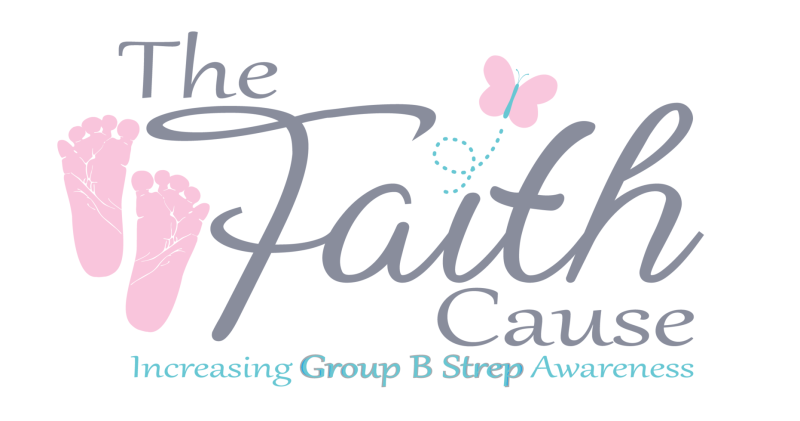
Stillbirth
Introduction
Stillbirth refers to the death of a baby after 24 weeks of pregnancy but before birth. A miscarriage is the loss of a baby before 24 weeks of pregnancy.
The medical profession describes stillbirth as either ‘intra-uterine’ or ‘intra-partum’. An intra-uterine stillbirth means that the baby has died in the womb. An intra-partum stillbirth means that the baby dies during labour.
How often does it happen?
Stillbirth is not a rare tragedy, it is more common than many people think. In the UK there are more than 3,600 stillbirths every year, one in every 200 births ends in a stillbirth. This is around 11 babies a day stillborn in the UK.
In the last 20 years the decline in stillbirth rates which accompanied advances in maternity care has slowed. Stillbirth rates remained largely unchanged from the late 1990s to 2011. More recent figures have showed a renewed decline and the rate is now at its lowest level since 1992. However much more needs to be done.
Three in every ten stillbirths happen at term (after 37 weeks gestation), the age when a baby is preparing to start life outside the womb.
Why babies die?
Janet Scott, Head of Research and Prevention at SANDS (Stillbirth and neonatal death charity) “The question about why your baby died never really goes away. For some parents there’s a definite cause but for many there isn’t and it can be source of deep sadness and anxiety. We are working at Sands to help promote both prevention strategies and a set of research priorities that’ll answer the questions so many parents are left with.”
In 2013, over 5700 babies died just before, during or soon after birth. That’s over 100 babies every week.
Possible causes
Many people think that stillbirths happen because of a developmental or genetic problem that means the baby could not survive. In fact, fewer than one in ten stillbirths is caused by what’s known as a ‘major congenital abnormality’. In a large number of stillbirths, the baby appears to be completely healthy.
Sometimes the mother has a condition that affects the pregnancy and sometimes there are major problems with the placenta or the umbilical cord.
Around a half of all stillbirths are linked to placental complications. This means that for some reason the placenta isn't functioning properly.
A small percentage of stillbirths are caused by problems with the mother's health, for example pre-eclampsia, or other problems, including cord
accidents and infections such as group B Strep.
For around one-third of babies, there is no clear cause for the death. For another third of stillbirths the baby was apparently healthy but was smaller than would be
expected. In both cases, these stillbirths may be described as ‘unexplained’.
Placental Problems
Researchers believe that some ‘unexplained’ stillbirths happen because the placenta, which joins the woman’s and baby’s blood systems, starts working less well. The deterioration may happen gradually, and may not be picked up by current routine antenatal monitoring.
It may mean the baby doesn’t grow as well as it should because the blood and oxygen supply is compromised in some way, Around a third of stillborn babies have not reached their growth potential and poor growth or growth that starts well and tails off during pregnancy, is a sign that a baby is at risk of stillbirth. If this is the case, the baby may also start to move less often.
Sands is funding research that asks whether encouraging women to be aware of their baby’s movements and to tell their midwife promptly if their baby is not moving as it normally does could help reduce the number of stillbirths. You can read more about this research study, called AFFIRM, here.
If you are pregnant and are concerned about your baby’s movements please contact your midwife.
We are also funding research looking at scanning in third trimester, which is aimed at improving methods for identifying babies who are not growing as they should.
Other Conditions
Stillbirth may also happen because of:
- bleeding (haemorrhage) before or during labour
- placenta abruption, which is when the placenta separates from the womb before the baby is born
- pre-eclampsia, which causes high blood pressure in the mother
- the umbilical cord slipping down through the entrance of the womb before the baby is born (known as cord prolapse) or wrapping around the baby’s neck
- intrahepatic cholestasis of pregnancy (ICP) or obstetric cholestasis, a liver disorder
- a genetic problem
- gestational diabetes, which is a type of diabetes that develops during pregnancy
- infection (for a list of infections which cause stillbirth visit NHS Choices).
If you are pregnant please read Sands advice for a safer pregnancy.
Post Mortems
Parents of a stillborn baby will be asked whether they want their baby to have a post mortem. A post mortem can sometimes find the cause of the stillbirth; it can also help rule out some causes. This information may be helpful if families are planning future pregnancies.
Sands booklet Deciding about a post mortem examination provides more information
Preventing more deaths
Many of the thousands of baby deaths that happen every year in the UK are avoidable and more must be done to stop so many babies dying before and soon after birth
.
The Lancet’s stillbirth series in 2011 pointed out the UK’s poor mortality record relative to other high income countries, and argued that a reduction in stillbirth rates is entirely possible.
In January 2012, Sands launched a major report Preventing Babies' Deaths: what needs to be done that sets out six key areas for action by those commissioning and delivering maternity services and those funding and carrying out research into stillbirth and neonatal deaths. Sands supports those working to implement change in these areas by funding research in order to collect the evidence needed to change practice, and by ensuring parents’ voices are heard at the highest levels.
IMPROVING THE REVIEW OF DEATHS
Sometimes babies die because of failures of care. Yet lessons about what went wrong are too often overlooked and opportunities to improve care are missed.
“As a pregnant woman, how can I contribute to the management of my own care if I don’t know the risks?” Mum
Perinatal post mortem rates in the UK are low. This means that many parents are left with unanswered questions about why their baby died, and about what might be done in subsequent pregnancies to avoid further deaths.
Sands is pleased to be involved as a stakeholder in the new collaboration to continue the national programme of work investigating maternal deaths, stillbirths and infant deaths including confidential case reviews.
Support
Stillbirth and late miscarriage can be devastating for the baby's parents, and they can also affect wider family members, including children and friends.
You may find it helpful to discuss your feelings with your GP, community midwife or health visitor, or with other parents who've lost a baby.
There are many support groups in the UK for bereaved parents and their families. Find bereavement support services in your area.
Some of these groups are run by parents who've experienced stillbirth, or by healthcare professionals, such as baby loss support workers or specialist midwives.
Read more about stillbirth support and coping with stillbirth.
Sands supports anyone who has been affected by the death of a baby before, during or shortly after birth. We offer emotional support and information for parents, grandparents, siblings, children, families and friends, health professionals and others.
Sands, the stillbirth and neonatal death charity, provides support for anyone affected by the death of a baby. The charity runs a helpline, provides information and support literature, and funds research into the causes of stillbirth.
You can call the Sands confidential helpline on 020 7436 5881, or you can email helpline@uk-sands.org. The helpline is open from 9.30am-5.30pm, Monday to Friday. It's also open later on Tuesday and Thursday evenings, from 6pm-10pm.
Your Baby’s Movements
Feeling your baby move is a sign they are well. If you notice your baby’s movements have changed call your midwife or maternity unit.
Find out about the Kicks Count app here



